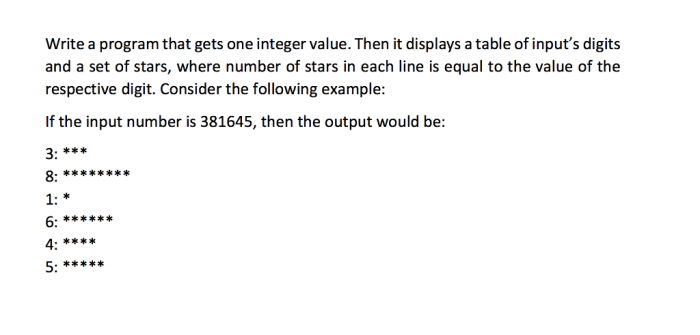Declare an integer constant months_in_year whose value is 12 – In the realm of programming, constants play a crucial role in maintaining code integrity and enhancing its readability. This article delves into the concept of declaring an integer constant named “months_in_year” with a value of 12, exploring its significance, syntax, and best practices.
An integer constant, unlike a variable, represents a fixed value that cannot be modified during program execution. Declaring such constants involves specifying their data type (integer in this case), name (months_in_year), and value (12), following a specific syntax.
Integer Constants in Programming: Declare An Integer Constant Months_in_year Whose Value Is 12

An integer constant is a fixed numerical value that cannot be modified during program execution. It differs from a variable, which can store a value that can be changed.
The syntax for declaring an integer constant in many programming languages is:
const int constant_name = value;
Valid integer constants are whole numbers without a decimal point, such as 12, -5, or 0.
Declaring the Constant “months_in_year”
The constant “months_in_year” represents the number of months in a year and is typically assigned the value 12.
To declare this constant with a value of 12, use the following syntax:
const int months_in_year = 12;
This constant will have a scope limited to the block or file where it is declared and will retain its value throughout the program’s execution.
Benefits of Using Constants
Constants offer several advantages in programming:
- Improved code readability and maintainability: Constants make it easier to understand the purpose and intent of specific values used in the code.
- Increased code correctness: By using constants, you reduce the risk of errors caused by accidentally modifying important values.
- Enhanced performance: In some cases, constants can improve performance by allowing the compiler to optimize calculations and memory usage.
Examples and Use Cases, Declare an integer constant months_in_year whose value is 12
The “months_in_year” constant can be used in various scenarios, such as:
- Calculating the number of days in a year: days_in_year = months_in_year – days_in_month;
- Creating data structures: An array of strings with 12 elements can be initialized using the constant: string months[months_in_year];
- Performing calculations: A program calculating the average rainfall over a year can use the constant: average_rainfall = total_rainfall / months_in_year;
Best Practices and Considerations
When using integer constants, consider the following best practices:
- Use descriptive names that clearly indicate the purpose of the constant.
- Avoid using magic numbers (unclear numerical values) in your code.
- Use constants when a value is unlikely to change during program execution.
While constants provide benefits, it’s important to note their limitations:
- They cannot be modified during program execution.
- Using constants excessively can make code less flexible.
Question & Answer Hub
What is the purpose of declaring an integer constant months_in_year?
Declaring months_in_year as an integer constant ensures that the value representing the number of months in a year remains fixed throughout the program’s execution, preventing accidental modifications.
What are the benefits of using constants in programming?
Constants enhance code readability by making it clear that certain values are fixed and should not be changed. They also improve maintainability by centralizing the definition of important values, making it easier to update them if necessary.
What are some best practices for naming and using integer constants?
Choose meaningful and descriptive names for constants to convey their purpose clearly. Use constants when representing fixed values that are unlikely to change, and avoid using them for values that may need to be modified during program execution.

